Client stories
We work with clients and agencies around the globe to deliver training, crisis exercises and bespoke support packages for social media communications.
Our clients benefit from our wide-range of sector-specific expertise and our secure, private service. For more information on the clients and sectors we have worked for, please contact us.
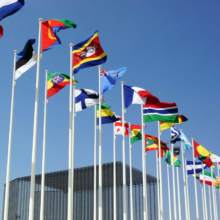
Mega-event crisis preparedness training Dubai Expo 2020
Brief:
How can you prepare your comms teams for an international event attracting more than 20 million visitors?
In 2015, we were commissioned by Hanover to help them deliver pre-event crisis communications training to their client, Expo 2020.
Our longest-running project to date, we delivered nine crisis simulation exercises interspersed with crisis response training and evaluation. Participants included the Expo 2020 communications and operations teams, Dubai Media Office and Dubai Police. In any one exercise, there were at least five external organisations involved.
We had to continuously develop the training, based on the evaluation from the preceding simulation and the constant growth of Expo 2020. We used Social Simulator to bring to life some of the most potentially challenging scenarios Expo 2020 might face, including cultural and operational incidents.
This program of simulations was different because:
- We had to raise awareness of potentially negative media coverage and social media commentary from international visitors.
- We needed to quickly adapt and develop training in response to internal changes and worldwide events.
- Expo 2020 is a mega-event, centred around a 438 hectare site.
Summary
- Preparatory training for one of the world’s largest mega-events, with more than 20 million visitors.
- Nine simulations with more than 50 participants in each one.
- Integrated external participants from organisations such as Dubai Police and Dubai Media Office.
- Content in English and Arabic.
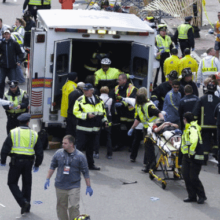
Crisis training across 4 counties in Washington State
Brief:
How can you bring together 32 organizations from multiple locations into one crisis simulation?
Our Asia Pacific team prepared and delivered a day-long crisis exercise for Pierce County. The simulation involved Public Information Officers (PIOs) from 32 organizations across 4 counties in Washington State.
For the emergency preparedness simulation, we devised a realistic dry run of a worst case scenario terrorist incident for each of the four counties. Each county was subject to a fictional high-impact terrorist attacks in quick succession, escalating in severity each time.
Participants included: Washington State Control, Pierce County Sheriff’s Department, King County Office of Emergency Management, Tacoma Fire Department and Northwest Healthcare Response Network.
- Six organisations used the Social Simulator simultaneously, responding to the crises in real time.
- Four incidents occurred in quick succession, adding exceptional pressure to responders.
- Participants needed to coordinate and communicate internally to ensure consistent, appropriate messaging based on a common operating picture.
- Participating agencies needed to coordinate with other government and private organizations on the dissemination of information, family response and other public affairs matters.
Summary
- Crisis preparedness training for 32 organizations across 4 counties.
- Participants were emergency responders including Washington State Control, Pierce Country Sheriff’s Department and Tacoma Fire Department.
- Integrated external participants such as government officials, public affairs and private organizations.
- Focus on spotting and managing spread of disinformation and to schedule and deliver press conferences.
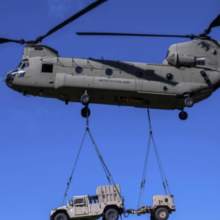
Wargames for the U.S. National Defense University
Brief:
How do you test the critical and strategic decision-making skills of warfighters and other national security leaders?
The U.S. National Defense University (NDU) commissioned us to help them test the critical and strategic decision-making skills of their students. NDU educates joint warfighters and other national security leaders in critical thinking and the creative application of military power to inform national strategy and globally integrated operations, under conditions of disruptive change, to prevail in war, peace, and competition.
This crisis response exercise was different because:
- It lasted a month – a first for Social Simulator.
- There were eight possible endings to the exercise depending on the decisions each team made. This demanded maximum flexibility from our content and the platform.
- The exercise tested sound decision-making ahead of the full crisis response scenario.
Summary
- Working with national security leaders and joint warfighters.
- Month-long simulation with news media, social media, and stakeholder injects adapted to directly reflect the decisions made by participants.
- Choose-your-own-adventure exercise with multiple possible outcomes.
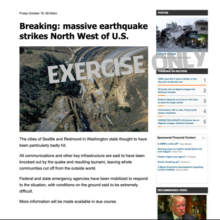
Public Information Officer response to natural hazards
Brief:
How do you prepare an effective response to the ‘Big One’?
The City of Redmond (Washington, USA) engaged us to support them in the delivery of the Cascadia Rising emergency planning exercise to enable Public Information Officers (PIOs) to rehearse how they would handle social media channels in the event of a high-impact earthquake in the region.
Businesses and government agencies are adept at responding to natural hazards on the ground, but the rise of social media has created challenges and opportunities that communicators need to be prepared for.
We challenged the participants in:
- The speed in which PIOs were able to engage with a range of audiences on social media.
- The consistency with which JCI members communicated and coordinated their efforts amongst multiple PIO teams.
- Information sharing across social media responders and wider incident decision-makers.
- Interactions with the Emergency Operations Center (ECO) and the wider humanitarian response effort.
Summary
- Testing social media response of PIOs across multiple counties to a natural hazard as part of the Cascadia Rising emergency exercise.
- Measuring levels of consistency and communication between JCIs, PIOs and the ECO.
- City of Redmond has updated its public information process based on the outcomes of this exercise.
- Revisions made to the memorandum of understanding; how PIO teams from different counties will cooperate in the event of a major incident.

Stress-testing international corporate affairs teams for Rolls-Royce
Brief:
Rolls-Royce approached us to test its global corporate affairs teams as part of a wider exercise testing its global crisis management structure and processes in response to a serious product issue.
Given the real-time nature of the modern media landscape, integrating social media into the wider communications response enables companies to:
- Receive early warning of any issues impacting their products via proactive monitoring
- Issue instant posts and updates to reassure investors and staff
- Provide executives with flexibility in terms of how they communicate with key stakeholders
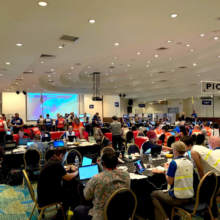
Crisis simulation exercises worldwide for oil spill response
Brief:
An international oil company recognised that regional teams needed bespoke training to build their digital confidence before incident response exercises.
Sometimes these exercises take place outside a particular team’s own country or region. So regional knowledge becomes even more important.
Social media has a vital role to play in an oil-spill response. It can:
- Keep people informed of the facts
- Prevent the spread of misinformation
- Help to keep people safe
- Help to mobilise volunteers

Helping emergency responders counter fake news
Brief:
Terrorism is a real and serious threat that governments and companies alike must prepare for.
And as well as the operational angles, emergency responders are having to get to grips with new challenges posed by social media. These include how to effectively:
- reassure and give advice to the public
- provide situational awareness
- counter misinformation
- gather intelligence
Working with the UK Home Office, the Metropolitan Police Service and a host of other emergency agencies, we help teams rehearse and test their operational and communications response to terror attacks.

Social media skills exercising for Chicago O’Hare and Midway airports
Brief:
How do you effectively test the response of PIOs spread across multiple JICs?
Chicago O’Hare and Midway Airports wanted to test their ability to harness social and traditional media channels as part of their emergency public information response to a high-impact incident impacting both airports simultaneously.
We supported their triennial full-scale exercise testing Public Information Officers (PIOs) spread across two Joint Information Centers (JICs) using Social Simulator.
Key focus points for participants:
Summary